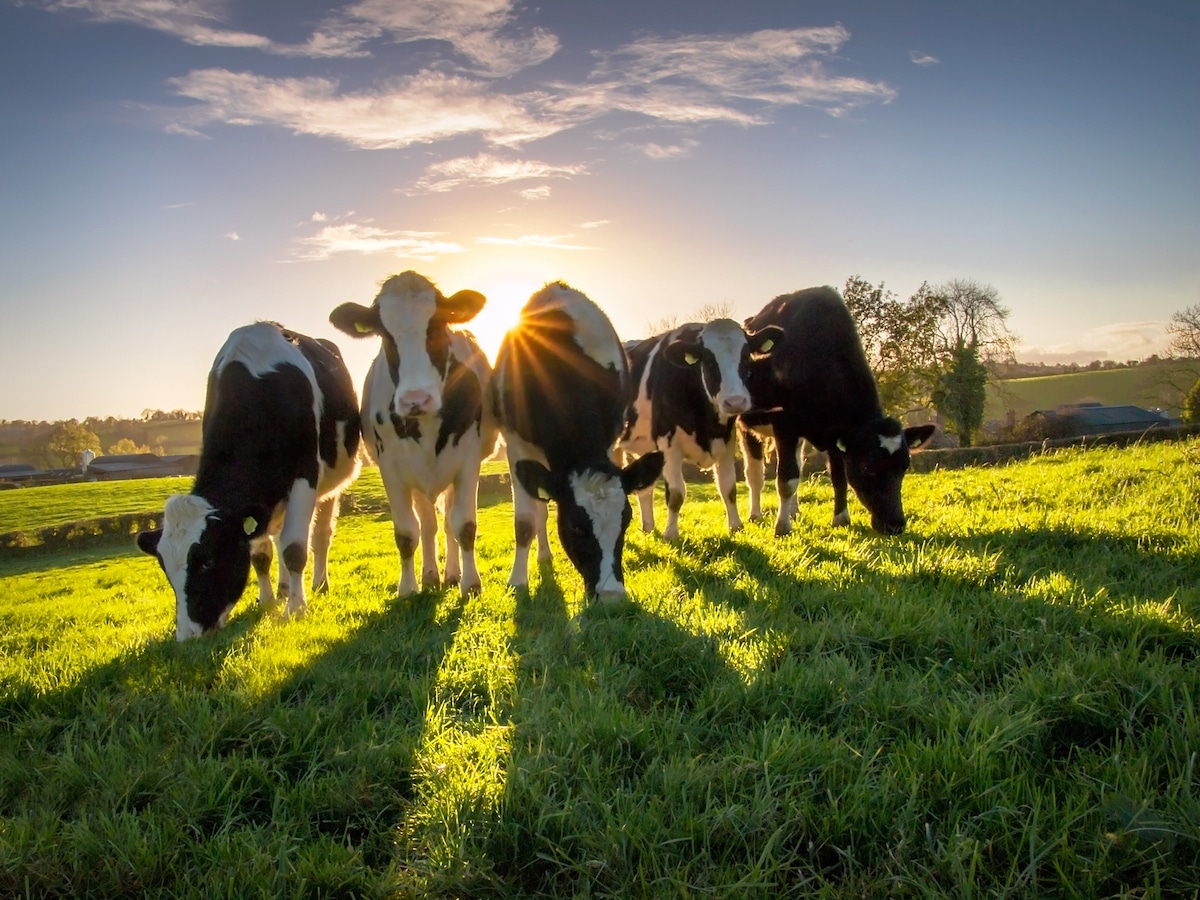Products You May Like
A group of yearling Holstein heifers in a field of grass in Northern Ireland. Alan Hopps / Getty Images
 Why you can trust us
Why you can trust us
Founded in 2005 as an Ohio-based environmental newspaper, EcoWatch is a digital platform dedicated to publishing quality, science-based content on environmental issues, causes, and solutions.
Methane is a powerful greenhouse gas that is released into the atmosphere in various ways, including during the production and transportation of fossil fuels, the burning of biomass, the decay of organic matter in landfills and… when cows burp.
In the UK, there are about 9.4 million cows and calves, and they could be given “methane blockers” as part of the UK’s plans to meet its climate targets.
Deputy President of the National Farmers’ Union Tom Bradshaw said most of the methane emitted by cows comes from “the front end rather than the back end,” reported The Guardian.
More From EcoWatch
“The evidence suggests these products could be useful,” Bradshaw said. “I don’t think we know enough yet about the impact they will have on the efficiency of the diet… but it’s something that we have to investigate to try and reduce methane emissions.”
UK farmers were happy about the idea, but environmental activists were concerned that the proposal wouldn’t address other environmental damage by the dairy and beef industries and ignored the possibility of consumption reductions.
In the government’s recently released Net Zero Growth Plan, it said, “We… anticipate entry of high efficacy methane-suppressing products to the UK market from 2025 and will explore the role of industry and government to maximise uptake of such products for suitable cattle farm systems at pace, through a phased approach. This will include the ambition to mandate the introduction of products with proven safety and efficacy in compound feeds for cattle as soon as practically possible in England.”
About 40 percent of methane emissions and 14.5 percent of total greenhouse gas emissions worldwide come from farm animals — mostly cows, according to PBS.
At the COP26 climate meeting in Glasgow in 2021, the UK and more than 100 other countries committed to the Global Methane Pledge to reduce methane emissions worldwide by at least 30 percent below 2020 levels by 2030.
Bradshaw said trials of methane-suppressing products were being conducted in the UK, but their rate of effectiveness was not yet conclusive, The Guardian reported.
“Governments and industry love their techno fixes like cattle feed methane suppressants and these may help a bit,” said Vicki Hird, head of farming for Sustain, an alliance of organizations and communities that promote a better system of food, farming and fishing. “But they won’t fix the major harms associated with our huge livestock fixation, from rainforest clearance for feeds and pasture to UK river pollution and harm to wildlife, all of which inhibit action on climate, too. We need to produce and eat less and better meat using agro-ecological tools known for whole farm and nature benefits.”
Currently, there are no methane-suppressing additives licensed in the UK, though trials are being conducted and some applications have been submitted.
Subscribe to get exclusive updates in our daily newsletter!
By signing up, you agree to the Terms of Use and Privacy Policy & to receive electronic communications from EcoWatch Media Group, which may include marketing promotions, advertisements and sponsored content.
